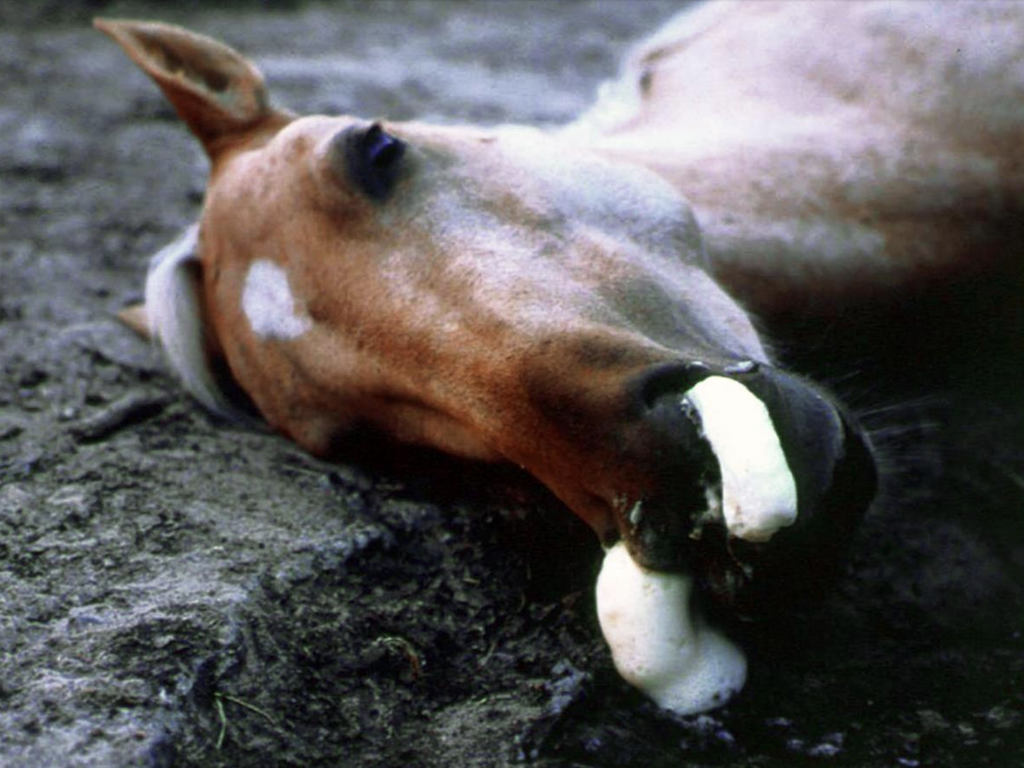3 Mins Read
Already battling the coronavirus pandemic, Thailand is now facing another deadly virus, this time affecting horses. Called African horse sickness (AHS), the disease has now reportedly led to hundreds of horse deaths in the past weeks. Experts believe that the global wildlife trade led to the outbreak in the continent that hasn’t seen AHS in more than half a century.
At least 500 horses have died since AHS first appeared in Thailand in late February. The viral disease is not known to harm humans, but is highly infectious amongst equine animals, including horses, zebras and donkeys. Officials say that there are 6 major outbreak regions in the country identified so far.
It is spread by biting midges that typically live in warm tropical climates, and when infected causes severe heart and lung damage that kills 70% of infected horses. Fatalities amongst zebras and donkeys are less likely, but they can act as reservoirs harbouring the virus and facilitating its spread.
Thai authorities are now ramping up testing and vaccination for the disease. In mid-April, the government issued a vaccination program for at least 4,000 horses. Meanwhile, neighbouring countries are worried that an outbreak of AHS could spread, with Cambodian officials now starting to erect netting areas to prevent midges crossing the border.
This marks the first time AHS has been recorded in Asia for over 50 years. While the exact origins of how the virus travelled from Africa to Asia has yet to be confirmed, experts suspect that zebras imported from Africa as part of unmonitored wildlife trading is to blame for causing the outbreak.
Though humans are not affected by the disease itself, AHS has devastated horse owners in Thailand and can ravage some of the poorest workers across the Southeast Asian region who rely on working on horses, donkeys and mules for their livelihood.
The news is sending yet another signal to the world reeling from the horrific impacts of the coronavirus crisis of the dangers of the wildlife trade.
Scientists say that around 70% of all emerging infectious diseases amongst humans are zoonotic in nature, meaning that they are transmitted from animals to humans. In the case of Covid-19, epidemiologists generally believe that the virus originated in bats and was carried by an intermediary host animal traded in the illegal wildlife industry, where it jumped onto humans.
AHS, alongside other animal-bound diseases such as avian flu, Div1 shrimp virus and African swine fever that devastated pork supplies across Asia last year, add to the growing cost of our broken relationship with wildlife and animals.
In a paper published in late April, the world’s top scientists and biodiversity experts warned that deadlier diseases will emerge in the future unless we put an end to the rampant destruction of nature and wildlife. In the study, the authors said that the combination of global supply chains and travel, deforestation, the illegal wildlife trade and livestock farming has created a “perfect storm” to bring about haunting diseases.
It is clear from the current Covid-19 crisis, which is unlikely to be brought under total control in the near future until a viable vaccine is developed, that the world must do everything it can to prevent another pandemic.
As every system, industry and sector is more interconnected than ever before, it is vital to recognise that public health is tied to the health of all animals and the environment, and ending our broken relationship must be the first step to avoid future outbreaks of disease.
Lead image courtesy of Research Gate.




